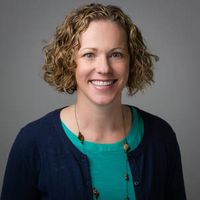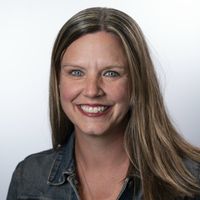Meet the Team
The Heart of Our Excellence
DLF Staff and volunteers work year round to make DLF Forum a special event. Here are the people that make this happen!

Shaneé Yvette Willis
Senior Program Officer

Aliya Reich
Program Manager for Conferences & Events

Lizzi Albert
Community Relations Manager, CLIR

Jenn Cummings
CONCENTRA-CMS

Kathy Azevedo
CONCENTRA-CMS

Wayne Graham
CIO, CLIR
Land Acknowledgement
The 2025 DLF Forum and Learn@DLF will be held at The Westin Denver Downtown, Colorado, USA, in November 2025. It’s important to Team DLF to acknowledge our tourism, privilege, and whose land we’re on wherever we gather.
As a team, we operate remotely year-round, which is also why we’d like to recognize the impact of the carbon footprint of technologies, which disproportionately impacts Indigenous communities.
We honor and acknowledge that we gather on the traditional territories and ancestral homelands of the Cheyenne and Arapaho Nations. The area now known as Auraria and the greater Denver region was also a site of trade, hunting, gathering, and healing for many Native Nations, including the Lakota, Ute, Kiowa, Comanche, Apache, Shoshone, and others. Forty-eight Tribes have called this land home. We recognize the Indigenous peoples as the original stewards of the land, water, plants, and animals who have cared for this place since time immemorial.
Denver remains home to many citizens of Indigenous nations, and we honor their enduring presence by paying respect to their elders. As we gather, let us reflect on the legacies of displacement and survival that shape our shared histories and commit to uncovering and learning from these truths together. We’d also like to acknowledge the free people forcibly kidnapped from Africa who were enslaved throughout the United States.
At CLIR, we are reflecting on what it means to make this acknowledgement and the type of action that must follow. We follow the tradition of donating to local Indigenous organizations in an effort to exemplify our commitment to beginning the process of interrogating and dismantling the ongoing legacies of settler colonialism.
We continue the tradition of land reparations by donating to the Denver Indian Family Resource Center (DIFRC). DIFRC’s mission is to strengthen vulnerable American Indian / Alaska Native children and families through collaborative and culturally responsive services. CLIR is happy to support this work. Learn more and donate here.
Adapted from the CU Denver Land Acknowledgement and the Land Acknowledgment from MSU Denver.